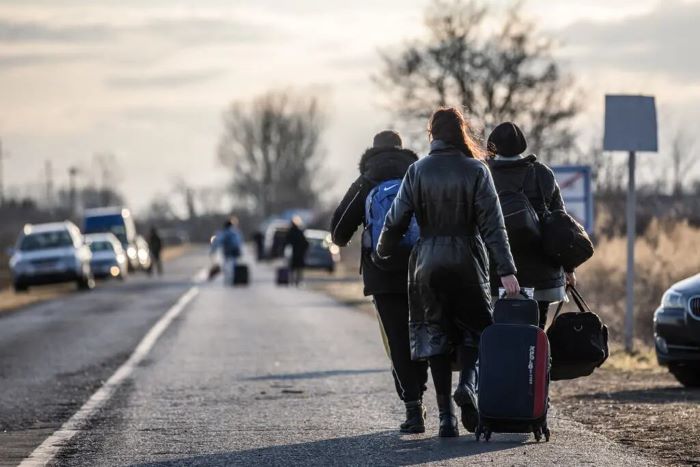World
Do Ukrainian Refugees Desire to Return to Their Homeland?
During President Volodymyr Zelensky’s recent press conference, a significant proposal for encouraging the return of Ukrainian refugees emerged—multiple citizenship. This idea, among other incentives, aims to address the pressing issue of 6.2 million Ukrainians, nearly 15% of the population, who have fled the country over the past two years. While cash payments, subsidized mortgages, and startup business loans were also mentioned, the emphasis on multiple citizenship raised questions. These inquiries centered around the potential acknowledgment that a substantial number of refugees might choose to stay abroad.
Potential Demographic Impact
The potential ramifications of Ukrainian choosing not to return are considerable, with demographic projections suggesting a possible 25% contraction in Ukraine’s population in the coming decades. Compounding this issue is the fact that departing Ukrainians are, on average, better educated than the population at large. This poses a significant economic challenge for a nation already grappling with reconstruction efforts.
Hopes for European Support
According to a report by the Wall Street Journal and Barron’s, Zelensky expressed hope that European nations would play a role in encouraging Ukrainians to return. This could involve reducing benefits for refugees, excluding those in dire circumstances. European countries like Czechia, Ireland, and Switzerland are considering travel subsidies to facilitate the return of Ukrainians once the conflict subsides. However, there is currently no discussion of enforcing repatriation.
Complex Sentiments in Germany
A recent exploration in Germany, which hosts the highest number of Ukrainians in Europe, revealed complex sentiments among refugees. With over 1.1 million Ukrainians in Germany, including substantial aid packages for integration, Wolfgang Hummel of the Berlin state office for refugee affairs anticipates that at least half of Ukrainians may choose to remain in Germany post-war.
Individual Stories and Shifting Intentions
According to a report by the Financial Times, individual stories, such as that of Alona Kazak, reflect the multifaceted decisions facing Ukrainian refugees. While surveys suggest that a significant portion of early war refugees may have already returned, intentions are shifting. A German government study found that, by early 2023, 29% aimed to stay in Germany permanently, and 15% planned to establish roots for at least the next few years.
Policymakers’ Focus on “Dual Intent”
Policymakers are increasingly discussing “dual intent,” aiming to foster refugee integration while preserving cultural ties to Ukraine. Social worker Khrystyna Valdovska, who assists newcomers in Brandenburg, emphasizes the opportunity for them to expose their children to European culture. The intention is for these experiences to be brought back, contributing to building a better Ukraine.
Collaborative Effort for a Comprehensive Solution
In the end, Europe and Ukraine need to collaborate for a comprehensive solution.European policymakers can assist by subsidizing return trips and providing financial support, while Ukraine should offer a range of incentives. However, in the long run, the most compelling lure will not be special benefits. Instead, it will be the shared aspiration for a secure, independent, and democratic Ukraine with a thriving economy.

